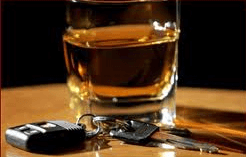 In North Carolina if someone is convicted of DWI there are six levels of sentencing that he could be placed in.
In North Carolina if someone is convicted of DWI there are six levels of sentencing that he could be placed in.
The most severe punishment is at an Aggravated Level One and the least severe is a Level Five. The judge will hold a sentencing hearing after a conviction of DWI to determine which level of punishment someone will get. During the sentencing hearing the judge will hear any aggravating or mitigating factors that exist to determine the appropriate sentencing level. The State bears the burden of proving any aggravating factors beyond a reasonable doubt while the defense has the burden of proving any mitigating fact by a preponderance of the evidence. Proof by a preponderance of the evidence is a much lower standard than beyond a reasonable doubt.
The judge will balance the factors that exist in a DWI case to determine the appropriate sentencing level.
Grossly aggravating factors include a previous DWI conviction within seven years, driving on while license revoke at the time of the offense, serious injury to another person, and driving with a child under the age of 18 at the time of the offense. Aggravating factors include having a BAC of .15 or more, reckless driving, two or more previous convictions of a driving offense that is worth 3 points or more, and speeding while trying to elude police. Mitigating factors include a BAC of .09 or below, safe and lawful driving other than being intoxicated, a safe driving record, and completion of a substance abuse assessment.
This list of factors is not exclusive and there are others in each category that a judge may consider. Generally the more mitigating factors a defendant has in his/her case the lower the punishment will be. Punishment may range anywhere from having to serve community service to having to serve 36 months in prison. Anyone who is charged with a DWI should contact an attorney immediately to have his/her case assessed in order to have the best outcome in court.
If you have been charged with DWI, contact one of our attorneys at Robert J. Reeves, P.C. directly by calling 704-499-9000 or toll free 877-374-5999
